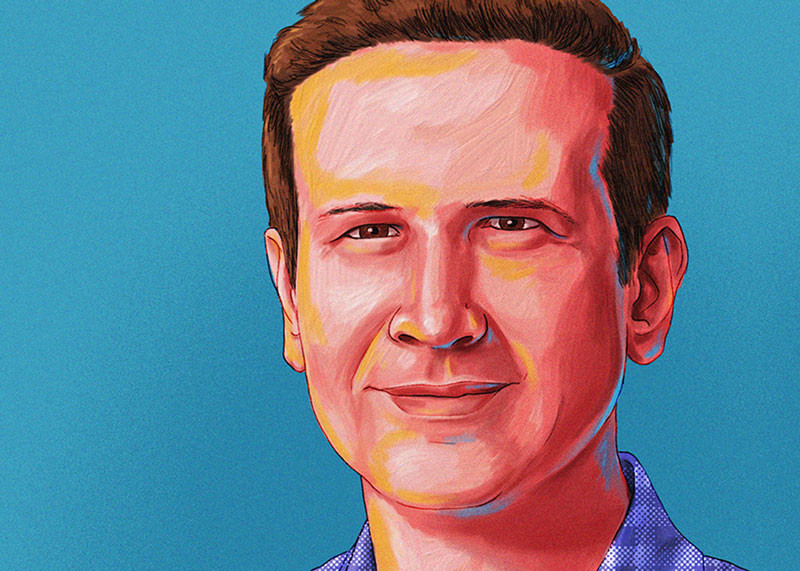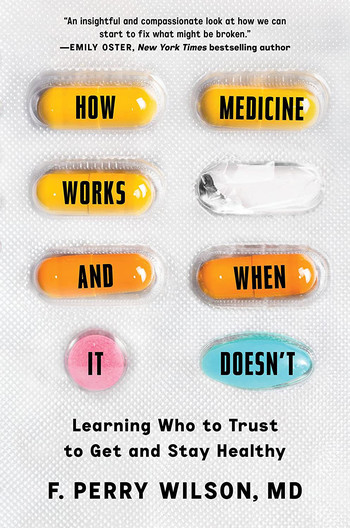Why don’t people trust their doctors?
I struggle with this a lot. I think that in the modern era there’s a selling of certainty. Opinions that sound decisive are amplified. But medicine is an imperfect science, a science of playing the percentages. We don’t know for sure if this medication will help, but this is our best option right now.
We’re quite conservative in what we say to our patients, but we’re competing in a media landscape with people who are essentially promising cures. It’s very reassuring to believe, for example, that if you get cancer, you can just take a megadose of vitamins and you’ll be cured. It’s not true, and it’s not honest, but it’s really attractive to people. Medicine is complicated, and there are no magic bullets, just better and worse choices.
Your discussion of the “illusory truth effect” — that people are likely to start believing something if they hear it enough — was a good explanation of why some people start to believe crazy theories when they’re bombarded with them online. Short of censorship, how can that be curbed?
That’s how our brains work. It’s well documented that if you hear the same statement again and again, you’re more likely to believe it’s true. And that’s how Facebook and Twitter work too. People retweet and forward things that confirm a worldview they’re invested in: “COVID isn’t real.” “The vaccine is tracking you.” I’d love to learn more about how these algorithms work, and I’d love to see more choice on the part of users about how this information is delivered.
You note that one barrier in the patient-physician relationship is the exorbitant cost of medical care resulting from insurance and pharmaceutical-company practices. What do you think is the way forward?
I would love a single-payer system, which is used in every developed country in the world and which results in better outcomes for less cost than in the US. But the US is not Europe. We’re a more conservative, more libertarian-leaning country. One possibility is all-payer rate setting, in which a hospital or health-care provider charges the same price for the service no matter who pays. It’s done in the state of Maryland already. But the status quo is unsustainable. That’s hard to argue with, even from the right. The rate of expenditure, growth, and cost is unacceptable to everyone, so we will see change.
What can be done to help laypeople learn to assess medical information and advocate effectively for their own health?
What we really need to teach is reasoning and critical skills, so people look at more than just the headlines. The book talks about causality, which is so critical to understanding medicine. My definition of causality is: if A causes B, then changing A changes B. People should be taught to understand the difference, for example, between a correlational study that says that drinking alcohol is linked to lung cancer and a study that says smoking causes lung cancer. The causal link is smoking — alcohol doesn’t cause lung cancer directly, but people who drink may be more likely to smoke. Changing smoking habits changes lung-cancer rates, but changing drinking habits doesn’t.
Systemic constraints have limited the amount of time doctors can spend with their patients, and the doctor-patient relationship has suffered. What can physicians do to restore trust?
I think we’ve had our blinders on. We’ve medicalized our interactions with patients. We tend to ask, What’s your condition? Then: What’s the medication that treats this condition? When you only have ten minutes, that’s maybe all you can do. But we’ve sort of abdicated our role in being a holistic advocate for our patients’ health to focus on this very pharmaceuticalized approach to medicine.
There’s a path here to build trust again between patients and physicians. Part of that is through rationality. Part of it is also through empathy. Physicians used to be management but are now labor. As of 2021, 70 percent of all physicians in the United States were employed by hospitals or corporations. I want doctors to remember that this is still a profession about human relationships. We on the physician side have to move closer to our patients.




